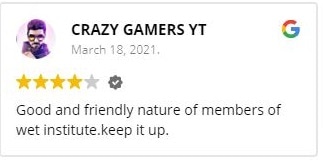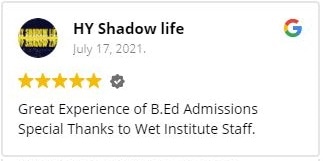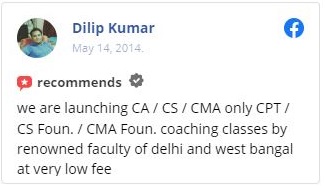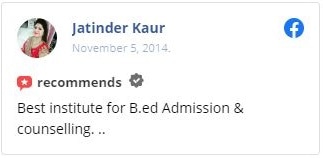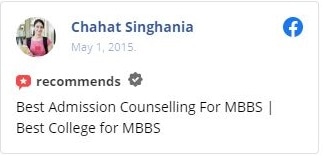General Nursing and Midwifery (GNM) Course: Admission Process, Eligibility Criteria, Scope, Duration, Fees, Syllabus, Career Opportunities and FAQs.
Eligibility Criteria for General Nursing and Midwifery (GNM) Course
To enroll in the General Nursing and Midwifery (GNM) course, candidates must meet specific eligibility requirements. Here’s a detailed breakdown:
Educational Qualification
- Candidates must have completed their higher secondary education (10+2) from a recognized board. A background in the science stream is typically required, particularly in subjects such as biology, physics, and chemistry.
- Candidates must have completed their higher secondary education (10+2) from a recognized board. A background in the science stream is typically required, particularly in subjects such as biology, physics, and chemistry.
Minimum Percentage
- Most institutions require candidates to achieve a minimum aggregate percentage of around 40% to 50% in their 10+2 examinations. However, this percentage may vary depending on the institution, so it’s important to verify specific requirements beforehand.
- Most institutions require candidates to achieve a minimum aggregate percentage of around 40% to 50% in their 10+2 examinations. However, this percentage may vary depending on the institution, so it’s important to verify specific requirements beforehand.
Age Limit
- Generally, candidates should be between 17 and 35 years of age at the time of admission. While some institutions may impose specific age restrictions, it’s advisable to check with the college for clarity.
- Generally, candidates should be between 17 and 35 years of age at the time of admission. While some institutions may impose specific age restrictions, it’s advisable to check with the college for clarity.
Physical and Medical Fitness
- A medical fitness certificate may also be necessary to ensure that candidates can handle the physical demands of the nursing profession.
- A medical fitness certificate may also be necessary to ensure that candidates can handle the physical demands of the nursing profession.
Personal Attributes
- Although there are no formal eligibility criteria, qualities such as empathy, communication skills, and a strong interest in healthcare are essential for success in this field.
Admission Process for General Nursing and Midwifery (GNM) Course
The admission process for the General Nursing and Midwifery (GNM) course typically involves several key steps.
Research and Selection
- Identify Institutions: Begin by researching various colleges or universities that offer the GNM course. Check their reputation, course structure, and facilities.
- Identify Institutions: Begin by researching various colleges or universities that offer the GNM course. Check their reputation, course structure, and facilities.
Eligibility Check
- Ensure you meet the eligibility criteria set by the institutions you are interested in. This includes educational qualifications, minimum percentage, age limit, and medical fitness.
- Ensure you meet the eligibility criteria set by the institutions you are interested in. This includes educational qualifications, minimum percentage, age limit, and medical fitness.
Application Form
- Complete the Application: Fill out the application form accurately, providing all necessary personal and academic information. Most institutions offer online application forms.
- Complete the Application: Fill out the application form accurately, providing all necessary personal and academic information. Most institutions offer online application forms.
Document Submission
- Prepare and submit the required documents, which may include:
- Identity proof (such as an Aadhar card or passport)
- Passport-sized photographs
- Medical fitness certificate
- Educational certificates
- Prepare and submit the required documents, which may include:
Entrance Examination (if applicable)
- Entrance Exam: Some institutions may conduct entrance examinations to assess candidates’ knowledge in relevant subjects, such as science and general health.
- Preparation: Use relevant study materials and practice papers to prepare for the exam.
Personal Interview
- Interview Process: Certain colleges may conduct personal interviews with shortlisted candidates. This helps evaluate motivation, communication skills, and overall suitability for the program.
- Interview Process: Certain colleges may conduct personal interviews with shortlisted candidates. This helps evaluate motivation, communication skills, and overall suitability for the program.
Merit List Announcement
- After evaluating entrance exam scores and interview performances (if applicable), institutions typically publish a merit list of selected candidates. This list may be available on the institution’s website or communicated directly to candidates.
- After evaluating entrance exam scores and interview performances (if applicable), institutions typically publish a merit list of selected candidates. This list may be available on the institution’s website or communicated directly to candidates.
Document Verification
- Verification Process: Selected candidates must undergo a document verification process, where original documents are checked against the submitted copies.
- Verification Process: Selected candidates must undergo a document verification process, where original documents are checked against the submitted copies.
Fee Payment
- Admission Fee: Once document verification is complete, candidates will need to pay the admission fee to secure their seat in the program. Institutions will provide details regarding payment methods and deadlines.
General Nursing and Midwifery (GNM) Course: Fees and Duration
Duration
The General Nursing and Midwifery (GNM) course typically spans 3 years, which includes both theoretical education and practical training. The program is structured to provide comprehensive knowledge and hands-on experience, preparing students for a successful career in nursing and midwifery.
Fees
The fees for the GNM course can vary widely based on the institution, location, and whether it is a government or private college. Here’s a general overview:
Government Colleges:
- Annual fees usually range from INR 10,000 to INR 50,000.
- Total fees for the entire course can be approximately INR 30,000 to INR 1,50,000.
Private Colleges:
- Fees are generally higher, ranging from INR 50,000 to INR 2,00,000 per year.
- Total course fees can amount to INR 1,50,000 to INR 6,00,000 for the complete program.
Additional Costs:
- Besides tuition fees, students should consider extra costs for uniforms, books, laboratory fees, and other materials, which may add an additional INR 10,000 to INR 30,000 annually.
- Besides tuition fees, students should consider extra costs for uniforms, books, laboratory fees, and other materials, which may add an additional INR 10,000 to INR 30,000 annually.
Scholarships and Financial Aid:
- Some institutions offer scholarships or financial aid options based on merit or need, helping to reduce overall expenses.
General Nursing and Midwifery (GNM) Course: Syllabus
Year 1
- Nursing Fundamentals
- Anatomy and Physiology
- Microbiology
- Nutrition
- Pharmacology
- Psychology
Year 2
- Medical-Surgical Nursing
- Maternal and Child Health Nursing
- Community Health Nursing
- Mental Health Nursing
- Sociology
Year 3
- Advanced Nursing Practice
- Pediatric Nursing
- Midwifery
- Research Methodology
- Clinical Placements
General Nursing and Midwifery (GNM) Course: Scope and Career Opportunities
The General Nursing and Midwifery (GNM) course opens up a wide range of opportunities in the healthcare sector. As the demand for qualified healthcare professionals continues to rise, GNM graduates are well-positioned to make a significant impact in various settings.
Scope of GNM
Increasing Demand for Healthcare Professionals
- With the growing population and advancements in healthcare, there is a consistent demand for skilled nurses and midwives in hospitals, clinics, and community health settings.
- With the growing population and advancements in healthcare, there is a consistent demand for skilled nurses and midwives in hospitals, clinics, and community health settings.
Diverse Work Environments
- Hospitals (public and private)
- Community health organizations
- Nursing homes and rehabilitation centers
- Educational institutions
- Non-governmental organizations (NGOs)
Role in Public Health
- Nurses play a crucial role in promoting public health and participating in health education, preventive care, and community outreach programs.
- Nurses play a crucial role in promoting public health and participating in health education, preventive care, and community outreach programs.
Career Opportunities
Registered Nurse
- GNM graduates can practice as registered nurses, providing direct patient care, administering medications, and coordinating with healthcare teams.
- GNM graduates can practice as registered nurses, providing direct patient care, administering medications, and coordinating with healthcare teams.
Midwife
- With additional training, GNM graduates can specialize in midwifery, offering prenatal, intranatal, and postnatal care to mothers and newborns.
- With additional training, GNM graduates can specialize in midwifery, offering prenatal, intranatal, and postnatal care to mothers and newborns.
Pediatric Nurse
- Specializing in pediatric nursing allows graduates to work with infants, children, and adolescents, focusing on their unique healthcare needs.
- Specializing in pediatric nursing allows graduates to work with infants, children, and adolescents, focusing on their unique healthcare needs.
Community Health Nurse
- Community health nurses work in public health settings, focusing on health promotion, disease prevention, and health education in communities.
- Community health nurses work in public health settings, focusing on health promotion, disease prevention, and health education in communities.
Clinical nurse educator
- Experienced GNM graduates can take on teaching roles in nursing schools, training future nurses in clinical skills and nursing theory.
- Experienced GNM graduates can take on teaching roles in nursing schools, training future nurses in clinical skills and nursing theory.
Nursing Administration
- Opportunities in nursing administration and management are available for those interested in leadership roles within healthcare facilities.
- Opportunities in nursing administration and management are available for those interested in leadership roles within healthcare facilities.
Research and Academia
- Graduates may pursue further education and research opportunities in nursing, contributing to the advancement of nursing practices and policies.

